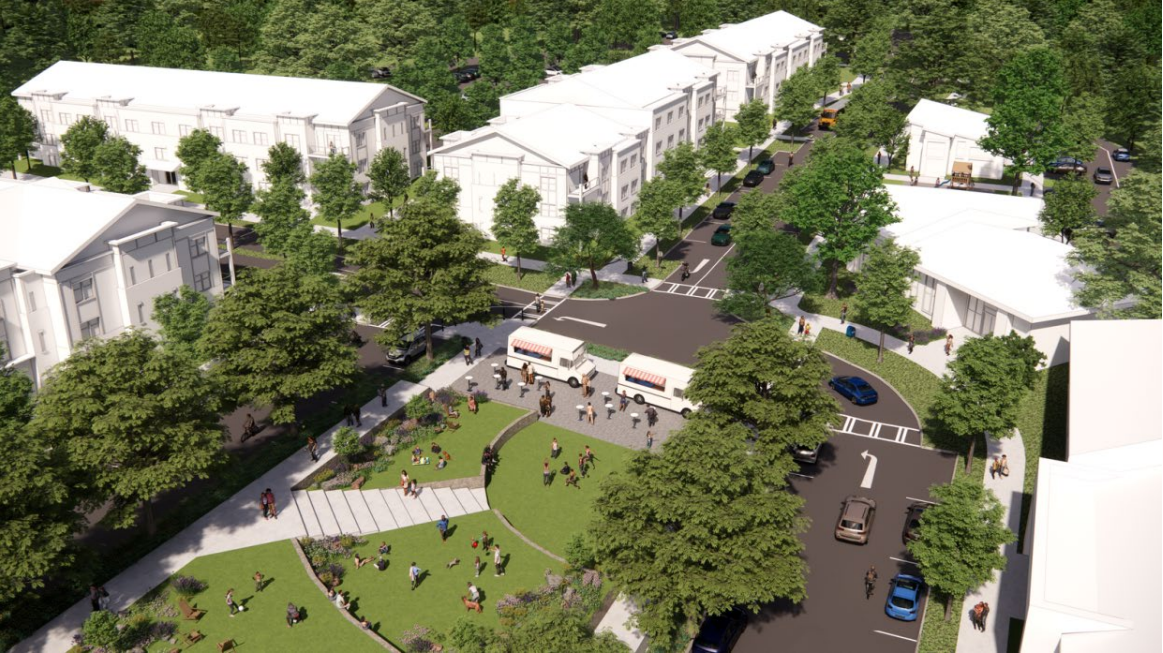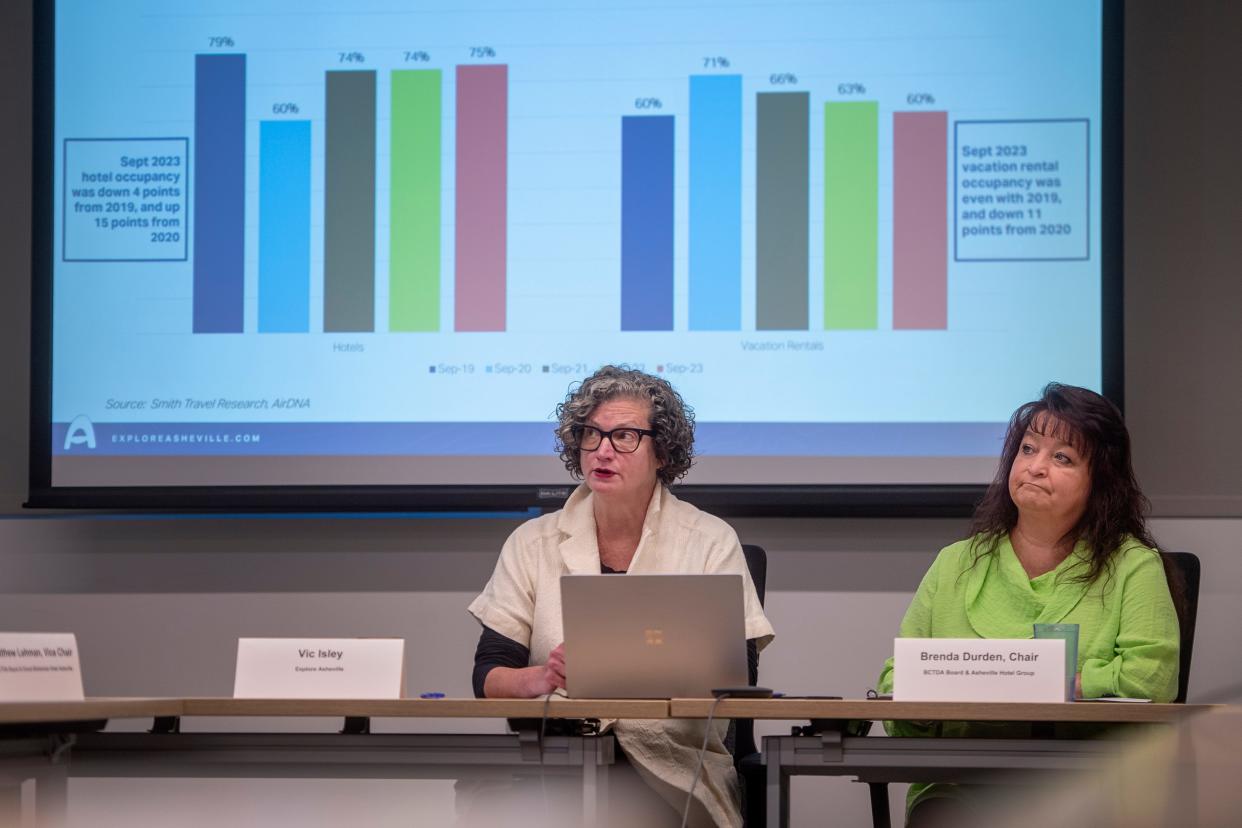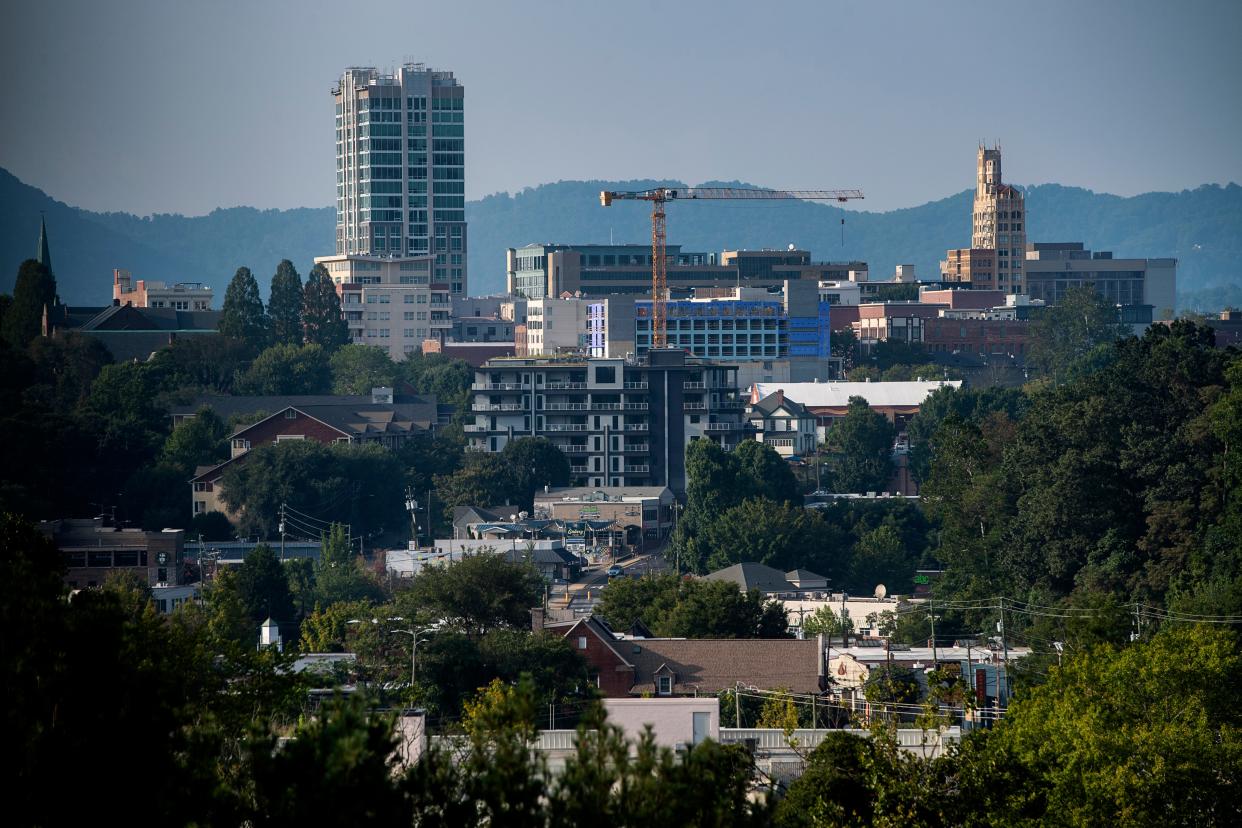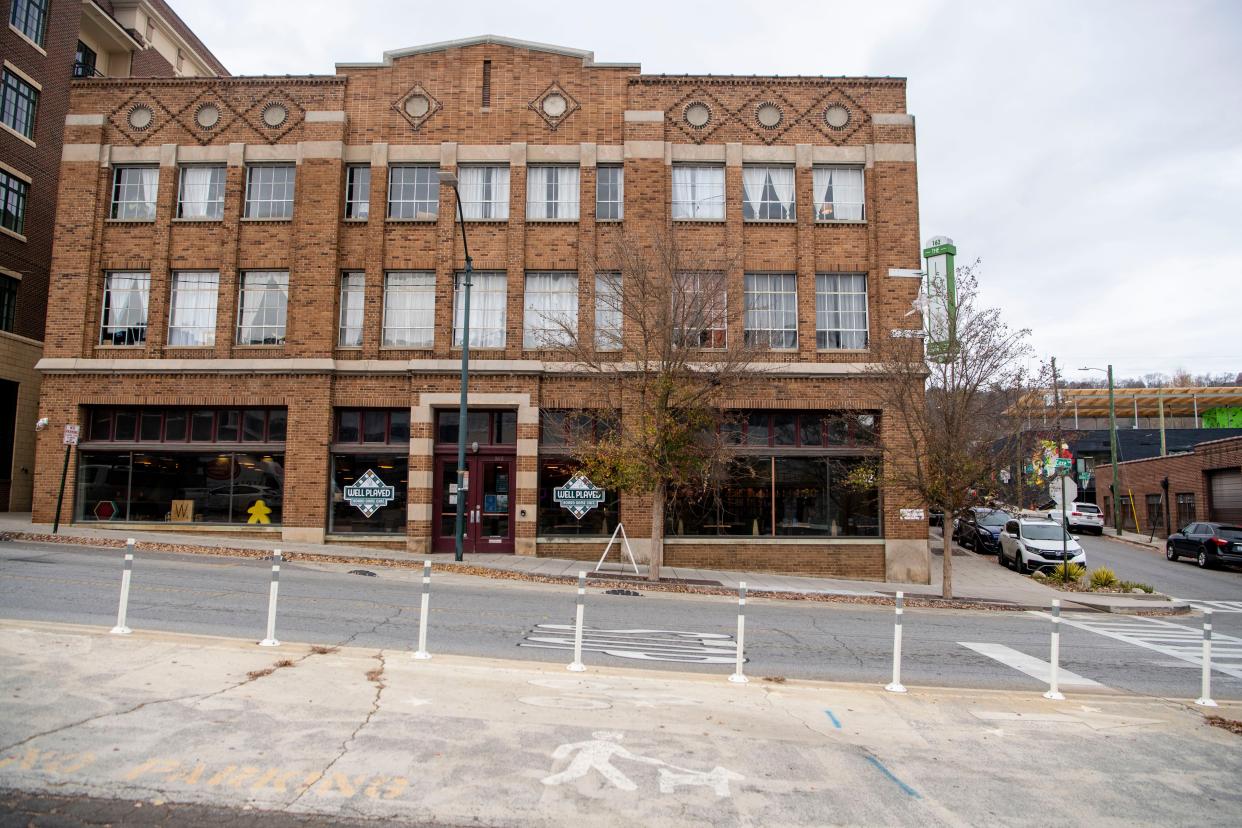Asheville, Buncombe Tourism Authority won't fund affordable housing with $10M in grants
ASHEVILLE - The Buncombe County Tourism Development Authority decided against funding for affordable housing from the inaugural $10 million Legacy Investment from Tourism Fund during its April 24 meeting and vote on the fund.
Some local leaders, including Asheville Mayor Esther Manheimer and Buncombe County Commission Chair Brownie Newman, expressed interest in LIFT funding for housing projects as the area faces some of the highest housing costs in North Carolina, the Citizen Times previously reported.
The decision to not fund affordable housing comes after the leader of a prominent North Carolina hospitality group said the legal interpretation of funding affordable housing using occupancy taxes would be "done by the courts."
While no direct funding went to affordable housing, Buncombe County's Ferry Road project received $4 million, the largest investment from the LIFT Fund.

One of Ferry Road's primary goals is the creation of 645 new housing units, of which over half are to be affordable. However, the BCTDA only approved funding for some amenities for the 137-acre project.
"We're excited to partner with Buncombe County on the Ferry Road affordable housing project in this inaugural cycle, by investing $4 million directly into recreational and conservational components, such as greenways, and trails," Vic Isley, president and CEO of Explore Asheville, said during the meeting.

The decision to not fund affordable housing means Mountain Housing Opportunities' Star Point Apartments did not receive any of its requested $1.5 million.
"We are obviously disappointed that MHO's Star Point Apartments is not among the inaugural LIFT grant recipients," President and CEO Geoffrey Barton said in an April 24 statement.
"We appreciate the LIFT Committee and TDA's consideration of our application and look forward to future opportunities to work together to deliver much-needed affordable housing."
BCTDA Board member Kathleen Mosher, who represents the Biltmore, said there is a "real need" to partner with community nonprofits, the city and the county to make sure "we have active projects being built to solve this affordable housing issue."
Why no affordable housing funding?
The decision not to fund affordable housing comes after Lynn Minges, president of North Carolina Restaurant and Lodging Association, warned a lawsuit would come from funding affordable housing in an April 11 letter to Buncombe County Commissioners and Chair Brownie Newman.
The NCRLA mission is "to protect, educate, and promote North Carolina’s hospitality industry," according to its website.
"If local elected officials decide to use it to fund affordable housing and other non-tourism-related expenditures, that interpretation will be done by the courts," Minges wrote in her letter, which was obtained by the Citizen Times.
A recent N.C. Court of Appeals decision found the Currituck County Tourism Development Authority "was disregarding its authorizing statutes and using occupancy tax funds for police and other emergency services," Minges noted.
The N.C. Travel and Tourism Coalition — of which the NCRLA, Explore Asheville and the Biltmore are a part — filed a friend-of-the-court brief in the Currituck County case in 2022, supporting the plaintiffs' suit to find the practice of spending occupancy taxes on emergency services illegal.
Currituck County asked the N.C. Supreme Court to take up the case on April 22.

Local leaders push for change?
In Buncombe County, one-third of collected occupancy taxes can be used for community capital projects and the remainder is spent on marketing.
The LIFT Fund is one of two funds, along with the Tourism Product Development Fund, that allows the BCTDA to put occupancy taxes toward local capital projects.
The LIFT Fund can only provide funds toward projects that will increase tourist and business traveler patronage and benefit the community at large, according to the state statutes controlling Buncombe County's occupancy taxes.
Only nonprofits and local governments can apply for funding through the TPDF and LIFT Funds.
Earlier this year, the city of Asheville and Buncombe County pushed for even more spending toward capital projects. The city recently asked for a "more equitable distribution of funds" in its legislative agenda, requesting a 50-50 split between marketing and projects, the Citizen Times previously reported.

Democratic State Sen. Julie Mayfield, who is running for reelection, recently told the Citizen Times she planned to introduce legislation to expand the LIFT Fund language to allow affordable housing to be part of future funding options if affordable housing projects were not part of the LIFT Fund decision.
After funding was approved April 24, Mayfield lauded the projects and told the Citizen Times she would not yet introduce legislation.
Instead, she said she will pursue further conversations with the TDA about how they can "continue to evolve the uses of occupancy tax dollars in Buncombe County."
"I want to be respectful of the conversations that we've had in the past and the collaboration that we've had in the past, and give that a chance to work," Mayfield said of the decision.
Mayfield believes the omission of affordable housing reflects the BCTDA's legal stance on the issue, saying "we can't ask the TDA to violate state law."

What projects were funded?
These are the projects awarded a total of nearly $10 million through the LIFT Fund. Some figures are rounded:
Buncombe County, Ferry Road Community, conservation and trails only: $4 million.
City of Asheville, Aston Park Tennis Center Court rebuild: $40,000
City of Asheville, Coxe Avenue Complete Street project: $3 million.
City of Asheville, ExploreAsheville.com Arena capital maintenance: $675,000.
Asheville Museum of Science, museum repair and expansion plan: $250,000.
Black Wall Street AVL, visitor experience upgrade: $77,500.
Blue Ridge Parkway Foundation, Improving visitor experiences at Craggy Gardens: $750,000.
RiverLink, Gateway Park on Riverside Drive: $270,018.
Hood Huggers Foundation, Blue Note Junction: $500,000.
Media Arts Project, Supernova Immersive Experience project design: $200,000.
Swannanoa Valley Fine Arts League, expanding visitors and artists experiences: $92,495.
University Botanical Gardens at Asheville, Inc, Facilities upgrade: $150,000.
More: Pressure on Buncombe County government to raise taxes or cut as savings projected to dip
More: Buncombe 'pumps brakes' on Airbnb regulations, tabling vote after strong community input
Will Hofmann is the Growth and Development Reporter for the Asheville Citizen Times, part of the USA Today Network. Got a tip? Email him at WHofmann@citizentimes.com. Please help support this type of journalism with a subscription to the Citizen Times.
This article originally appeared on Asheville Citizen Times: Buncombe TDA approves $10M to projects; no affordable housing
